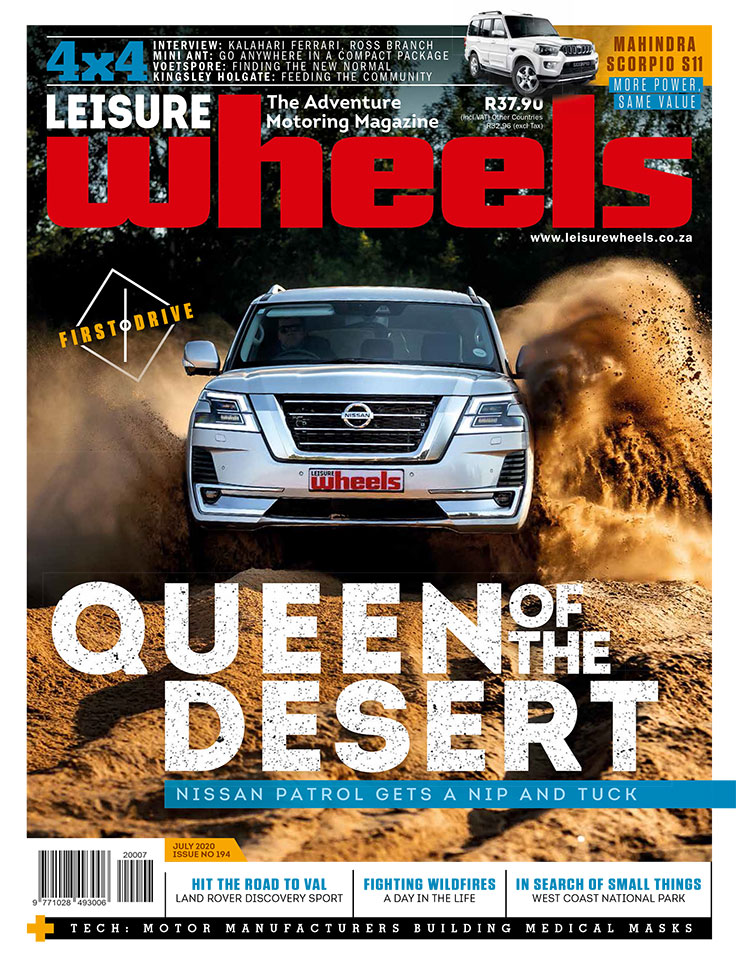Alternative fuels – are these guys onto something?
At the time of writing, beleaguered consumers were waiting for a price increase that would see the cost of petrol spiral to more than R12 a litre.
That is the good news. The bad news is that some economists are predicting the cost of petrol could rise to R14 a litre during the course of the year, and some pessimists reckon it could go as high as R15 a litre.
Economics is a science not altogether understood in the corridors of Leisure Wheels. We work on the simple principle that what comes in must be greater than what goes out, and it appears SA’s fuel price woes are the result of a weakened average rand/dollar exchange rate.
How you fix that is a mystery to us, but fuel price hikes make it more difficult to ensure what comes in is greater than what goes out. You don’t need to be an economist to understand that producers and suppliers simply pass on increased transport costs, and the man in the street is the loser.
We at Leisure Wheels may be a little disadvantaged in the economics department, but we do have a nose for news. The fuel price hike and the ongoing search for alternative and bio fuels tied in nicely with news filtering through from the Western Cape of an inventor who has developed a process of transforming waste plastic and old tyres into multi-fuel that can be used to drive a wide range of machinery.
William Graham, the founder of Grahamtek Systems, has an international reputation for his work in the water industry. His work in this field revolutionised water purification and Graham has now turned his attention to multi-fuel.
Fueltech has developed a small plant that can process multi-fuel at a rate ranging from 50 litres per hour to 2 000 litres per hour. The plant can also be built into a container mounted on a mobile trailer, and without any additional mixing, the multi-fuel can be used to power a variety of machinery.
The generator used to run the plant uses a portion of the multi-fuel produced and the unit is self sufficient. The plant is also computerised and only basic training is needed for its operation.
The multi-fuel is produced at a cost of around R2,40 per litre and according to the Fueltech website (www.fueltech.co.za) the company runs a 150Kva generator on around 10% of the multi-fuel produced per day. The electricity produced runs the entire manufacturing plant and multifuel is used to drive a company diesel delivery vehicle.
The multi-fuel has also been tested by an accredited institution with “very satisfactory results” which meet required standards for furnace and marine oil. Waste produced by the process can also be converted to charcoal, with the technology allowing for a cost effective and environmentally friendly method of reusing waste plastic.
Grahamtek Systems manufactures water purification plants and Fueltech has plans to commercialise the new multi-fuel technology. Graham sees a huge potential for farmers, mining companies and municipalities with a job creation spin-off coming by way of waste plastic collection.
It would appear, too, that there is no shortage of waste plastic in this country. Fueltech estimates that the average South African household produces about one ton of waste plastic a year, which translates into around 30 million tons.
The 30 million tons does not take into account the waste generated by the manufacturing and packaging industries and old car tyres that pile up in SA. Only about 18% of SA’s waste plastic is recycled and there is little doubt, in a world of dwindling resources, that there is huge potential for recycling and the development of alternative fuels.
A final thought. At the start of 2009 the price for a litre of 93 unleaded was as low as R5,68!








